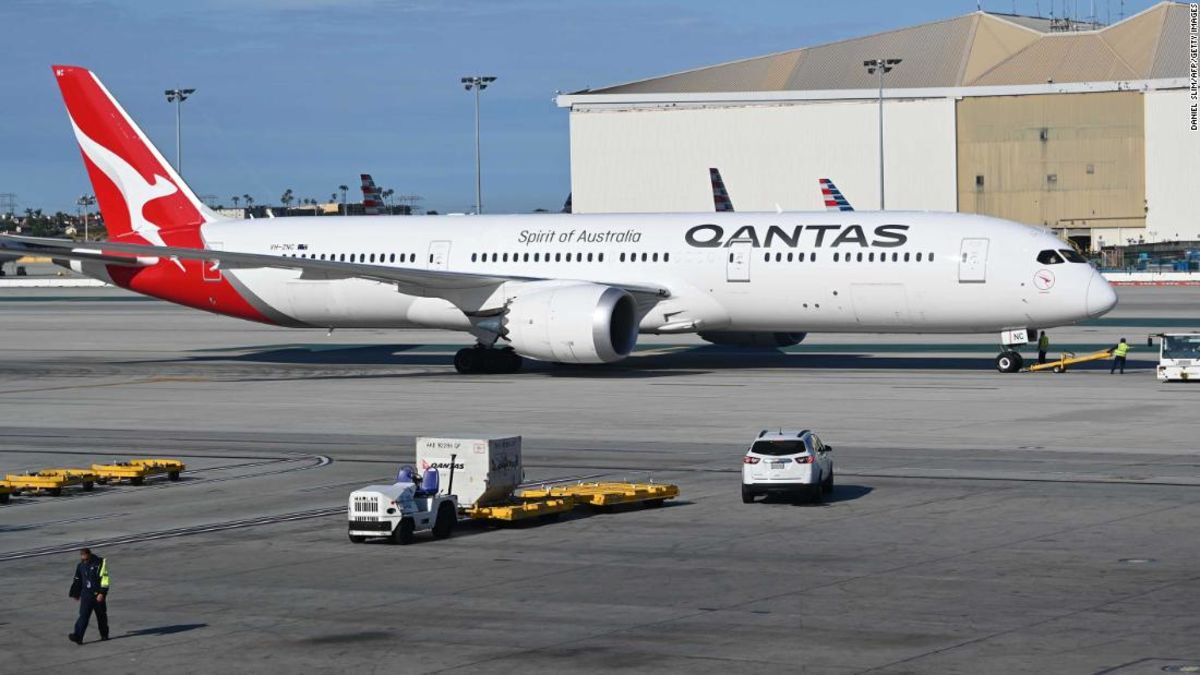
(CNN) — And we have takeoff. A research flight set to test human limits on long-haul flights during what will be the first commercial flight to travel non-stop from New York to Sydney has departed John F. Kennedy International Airport.
Four pilots will work on rotation during the flight, with two additional pilots in the cabin, Qantas said.
The Boeing 787-9 Dreamliner flight is the first of three test flights, dubbed by the airline as "project sunrise," which will run in October, November and December to gather data.
The next test flight will take place in November, from London to Sydney, while there will be another New York to Sydney flight before the end of the year.
After the test flights, the new planes will enter commercial service.
Qantas has said it hopes to operate direct flights from three cities on Australia's east coast -- Sydney, Melbourne and Brisbane -- and New York and London by 2022.
Currently the only direct route from Australia to Europe goes from Perth to London, a 9,000-mile journey which started in March 2018.
How will passengers be monitored?
Researchers from Sydney University's Charles Perkins Centre, Monash University and the Alertness Safety and Productivity Cooperative Research Centre -- a scientific program backed by the Australian government -- will examine the impact of the long flight on those on board.
Passengers in the main cabin will wear monitoring devices, and experts from the Charles Perkins Centre will study how their "health, wellbeing and body clock" are impacted by a set of variables that include lighting, food and drink, movement, sleep patterns and inflight entertainment.
Those on board have been advised to keep a daily log in the lead-up to the flight and for two weeks afterwards, to show how they feel and how they've coped with jet lag.
Pilots and cabin crew will also be monitored and keep sleep diaries. Cameras will be mounted in the cockpit to record pilot alertness.
"People seem to be wildly different when it comes to the experience of jetlag -- and we need more research on what contributes to jetlag and travel fatigue, so we can try and reduce the impact of long-haul flights," Professor Stephen Simpson, academic director of the University of Sydney's Charles Perkins Centre, told CNN Travel.
"We have a long way to go in terms of understanding how the wide variety of influences -- including nutrition, hydration, exercise, sleep and light -- might work together for maximum benefit."
Monash University scientists will focus on the flight crew, recording their melatonin levels before, during and after the flights, as well as studying brain wave data from electroencephalogram devices worn by the pilots.
This information will then be shared with the Civil Aviation Safety Authority "to help inform regulatory requirements associated with ultra-long-haul flights," Qantas said in a statement.
Francesca Street and Emily Dixon contributed to this report.
from CNN.com - RSS Channel kalo berita gak lengkap buka link disamping https://ift.tt/2MtauY1
No comments:
Post a Comment